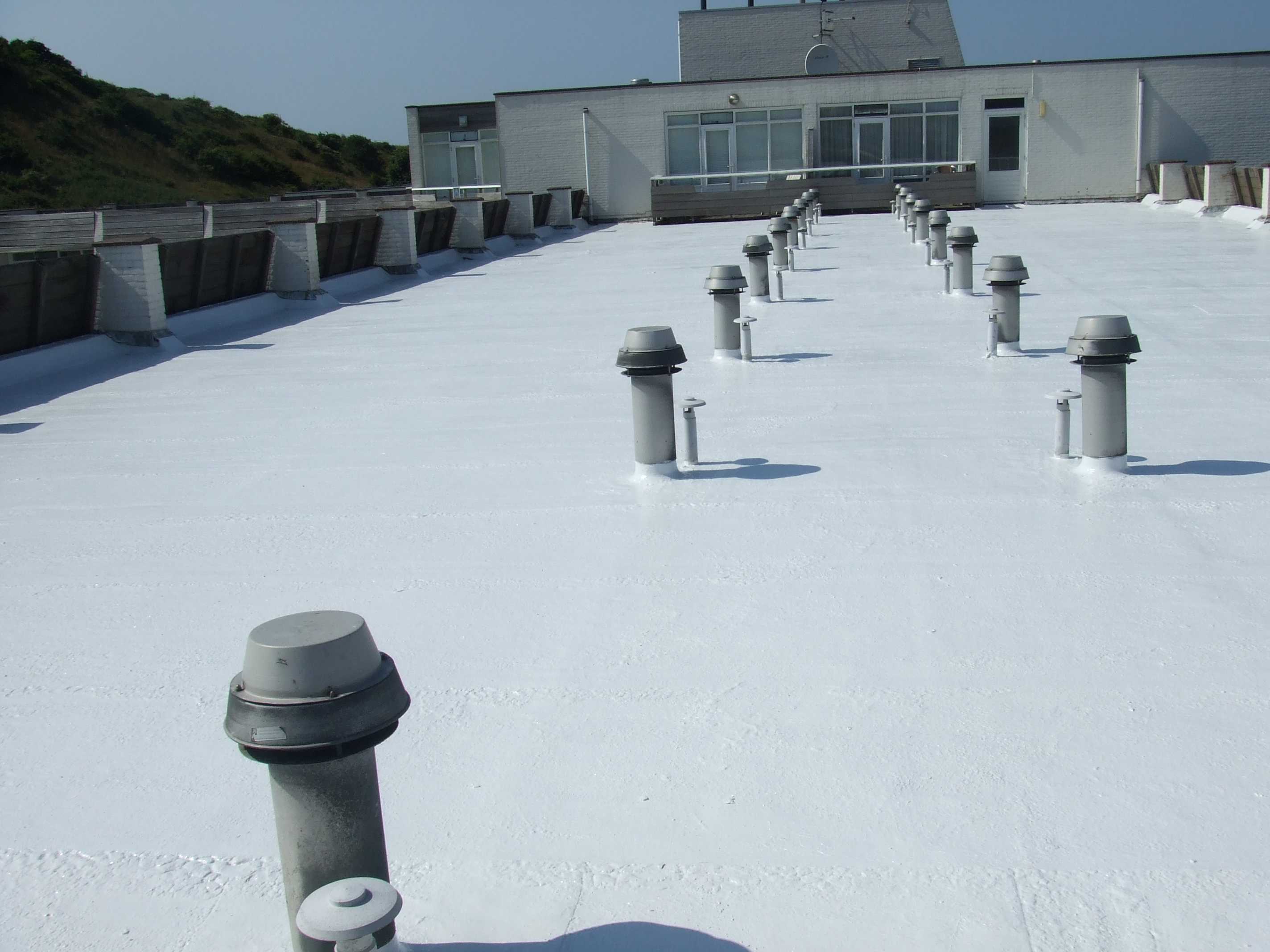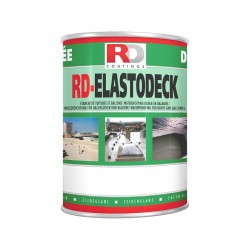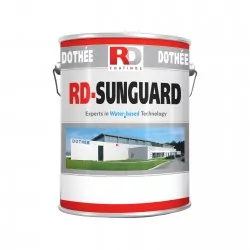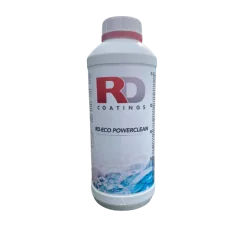How do you apply a heat-reflecting coating to a roof covered with a bituminous roofing?
This solution describes the application of a coating to reflect the maximum amount of sunlight to reduce heat build-up inside a building. It is a solution dedicated to roofs covered with bituminous roofing.

%20(9).JPG)

The products you need
RD-Elastodeck Single-component liquid waterproofing coating for roofs, decks, and balconies.
Single-component liquid waterproofing coating for roofs, decks, and balconies.
RD-Sunguard High performance solar and heat reflective Cool Roof coating with exceptional properties.
High performance solar and heat reflective Cool Roof coating with exceptional properties.
RD-Eco Powerclean Powerful biodegradable alkaline concentrate composed of anti-flash rust additives for cleaning...
Powerful biodegradable alkaline concentrate composed of anti-flash rust additives for cleaning...
The problem
Roofs covered with bituminous roofing are generally black or very dark. In summer or during periods of strong sunlight, the black color absorbs the sun's rays and accumulates large quantities of heat which, depending on the building's insulation, transfers to the interior.
This results in higher power consumption for buildings with air-conditioning units, or a stifling sensation for those without.
Not all paint systems are suitable for application on a roofing.
Good adhesion and elasticity are required to accommodate construction movements and temperature shocks.
You need a coating that prevents bituminous substances from seeping through the paint film due to the heat, causing brown spots.
The solution
RD-Elastodeck & RD-Sunguard
Covering a roofing is a quick and easy two-step process using these two water-based, single-component products.
RD-Elastodeck is used as an adhesion primer and insulator, preventing bitumen from rising through the film during hot weather.
RD-Sunguard is a new-generation reflective coating combining very high reflective properties with good resistance to soiling.
These products are easy to apply to commercial, industrial and residential buildings alike.
A technique that improves the yield of photovoltaic panels!
A number of studies have shown that reducing the surface temperature of a roof covered with photovoltaic panels improves their efficiency.
Recommended quantities and thicknesses
RD-Elastodeck :
Standard system for roofs with no problems of water infiltration or roofing delamination:
1 kg / m² for 440 µ dry - 50 ft² / gallon for +/- 17.5 mils dry.
Or
Waterproofing system for roofs with water infiltration problems - refer to our Solution sheet "How to renovate a flat roof covered with leaking bituminous roofing" for complete instructions.
2 kg / m² for 880 µ dry - 25 ft² / gallon for +/- 35 mils dry.
With RD-Roof Fleece if the surface shows advanced aging and cracking.
RD-Sunguard :
0.09 l / m² for 40 µ dry - 440 ft² / gallon for +/- 1.6 mils dry.
Benefits of the system
This system offers multiple advantages for the contractor and the applicator:
- low VOC (volatile organic compounds) and CO₂ emissions
- easy to use solution
- quick and easy surface preparation
- fast drying times
- reduced downtimes
- long system durability
Our water-based products prevent:
- bringing hazardous products to the site while eliminating the risk of fire or explosion
- nuisances in the vicinity with annoying odours during and after application
- emissions of harmful substances
Getting ready
The weather
Outdoors, avoid starting work if rain is forecast within 3 hours of application. A minimum of 12°C / 54°F is recommended for comfortable working conditions and higher productivity.
Avoid working under direct sunlight, especially in very hot regions, where early morning or late evening work is preferable.
Make sure there is no condensation on the surface before and during application, and during the first hours of drying.
Surface preparation
The most popular and fastest way to achieve good surface preparation is to clean the object with a high-pressure washer fitted with a rotating nozzle at an angle of zero degrees and a minimum pressure of 200 bar / 2900 psi. This procedure will remove contaminants and any bad adhering paint from the surface. Paint residues that have resisted cleaning may remain, as their adhesion is still sufficient.
Ensure that the surface is free of moss, mildew, oils, grease and chlorides (salts). Rinse with an alkaline solution (this can sometimes be added to the high-pressure cleaner).
Don't hesitate to use RD-Eco PowerClean to clean the surface! A powerful biodegradable cleaner.
Check that the existing coating is still adhering properly. Never paint over a poorly adhering coating!
The equipment
RD-Elastodeck and RD-Sunguard are easy to apply with a roller or airless applicator. They can also be applied by brush in hard-to-reach areas.
Roller application takes longer than airless spraying, and you'll probably need to apply more coats to achieve the recommended minimum thickness.
The type of brush to use is very common, prefer a thick brush suitable for waterborne products.
If spraying :
RD-Elastodeck: use an airless with a minimum power of 180 bar or 2600 psi and a nozzle varying between 0.017 and 0.023 inches.
RD-Sunguard: use an airless with a minimum power of 120 bar or 1700 psi and a nozzle varying between 0.010 and 0.012 inches.
If you use a roller, we recommend 14 mm / ½ inch polyamide rollers for RD-Elastodeck.
For RD-Sunguard, use a short-haired or lacquer-type roller.
The application
Preparing RD-Elastodeck and RD-Sunguard
The products are ready to use, so stir them mechanically for several minutes. Dilute up to 3-5% with water if you're working in very hot weather, to delay drying slightly.
Applying RD-Elastodeck
The first coat of RD-Elastodeck is generally applied with an airless or roller. Applying with an airless enables rapid application of a thick film with a uniform surface and no traces of rework. RD-Elastodeck produces virtually no overspray. It's a dry fall type of coating.
When applied by roller, two coats may be required, depending on the length of the roller's bristles. As the product generally dries very quickly, this doesn't take long.
Allow to dry for at least 4 hours (at 20°C - 68°F) before applying the next product.
Applying RD-Sunguard
RD-Sunguard can also be applied with an airless sprayer or roller. Please note that it’s a very thin coat of RD-Sunguard that should be applied!
The system will be dry in +/- 4 hours!
Thanks to the high content of high-performance white pigments, the roof will reflect the maximum amount of sunlight, for greater indoor comfort and cost savings!









